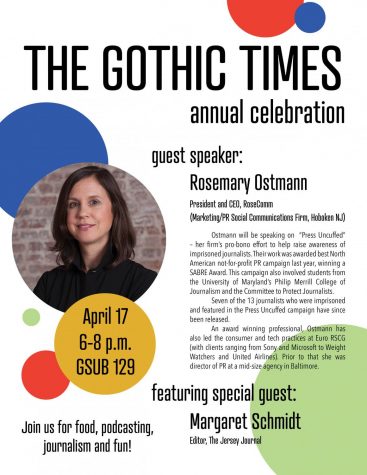Dispatching Sirens
May 19, 2015
RVAC 446 and Medic 25, you’re responding to 160 Maple St. for an unresponsive person.
The patient is in cardiac arrest. CPR in progress on the scene.
RVAC 446 and Medic 25, you’re responding to 510 Morris Ave. for a domestic dispute. Female patient has hand and facial injuries.
RVAC 446 and Medic 25, you’re responding to 75 Elm St. for a potential overdose. Patient is locked in the bathroom with a bottle of pills.
*****
It’s the middle of the night, but that doesn’t make response to emergency any less urgent.
It’s part of the job.
The job that goes unnoticed.
It’s medical responders who work as everyday heroes, working long hours to ensure public safety for little, and sometimes no pay.
It’s people like Nicollette and Chris, volunteering to work a 24 hour shift.
Nicollette and Chris have already been on duty for 12 hours, and they still have another 12 to go. They didn’t sleep much the night before, having 3 calls in a row.
It’s a slow moving morning for the two. The physically demanding job that needs to be done in the middle of the night has their energy levels low.
Tired and hungry, they decide it’s time for breakfast, but more importantly, coffee.
The radio has its own place at the table. The waitress passes around the menus and immediately asks if they’re ready to order, she knows they may need to leave at anytime.
And she’s right.
The tones of the radio echo off the walls of the diner.
“The thought of food was nice,” Chris says as he grabs his jacket and tucks his radio away. The coffee cups, still half full, stay behind on the table.
“We have to go,” Chris tells the staff with a smirk as he heads to the door.
“What would you like me to do?” the waitress asks.
“We’ll be back,” he assures her..
“I’ll keep it warm for you in the back,” she replies with a smile, a smile not seen.
*****
There are two different classifications of EMTs: EMT-P (paramedic or medic) and EMT-B (basic, or commonly referred to simply as EMT).
The UCLA Center for Prehospital Care marks one of the major differences between an EMT and a paramedic as the level of training and the type of treatment each is able to perform.
“(Paramedics) build on their EMT education and learn more skills such as administering medications, starting intravenous lines, providing advanced airway management for patients, and learning to resuscitate and support patients with significant problems such as heart attacks and traumas,” UCLA writes.
Those that fall under EMT-B are typically the responders for everyday illnesses and injuries. They are the the ones who help assist fall victims. They are the ones transporting emotionally disturbed patients for treatment.
*****
It snowed the night before; the roads are narrow and slippery. The grueling weather makes arriving to a scene difficult; it’s not easy to race down streets when driving conditions are already unsafe.
Chris parks the ambulance alongside the old brown house on the corner . Police officers are already inside with the patient, who had fallen in the bathroom. She’s now lying in bed, wincing in pain, at every little move she makes. Chris tries to make the woman as comfortable as possible.
“Do you have a list of your medication,” Nicollette asks her.
“It’s in my,” the woman stops to cry out in pain “purse.”
Without knowing the different medication a patient is taking, care and treatment can be delayed.
There’s a tight cornered, wrap around, staircase in the home; it’s impossible for a stretcher to make it up the stairs. The pain the woman is too excruciating for a stair chair, so they grab a reeves out of the ambulance to carry her down the stairs on.
The reeves is a plastic flexible stretcher, without wheels, that resembles a deflated water raft, used to temporarily move a patient to a standard stretcher.
After the woman is transported and settled in the emergency room, Nicollette finishes up the necessary paperwork for the hospital and squad’s record. Chris takes the stretcher down the hall to a vending machine-like sheet dispenser and prepares for when another call comes.
Every EMT has their own technique to making a stretcher. There’s no standard protocol; it’s what each EMT is comfortable with and how they most easily transport a patient.
“My way’s the best way, I make a taco,” Chris says. “Everyone likes tacos.”
Just as Chris is ready to walk out to the ambulance, the tone for their squad drops.
“You gotta be kidding me, go grab Nicolette,” Chris sighs.
They rush to the ambulance, “Well I guess there’s no breakfast today,” Chris says as he passes another crew.
They laugh and agree.
“No breakfast today,” the neighboring EMT laughs.
*****
EMT’s, on the national level, are the lowest paid first responders.
According to a report by the Bureau of Labor Statistics (BLS), the average annual salary for a medical responder in 2013 was $31,270. The highest earning 10 percent earned $54,710 and the lowest 10 percent brought in a mere $20,420.
Because of these low wages, it’s not uncommon for those in EMS to work at multiple agencies if this is their form of income.
EMT’s often work on a volunteer basis as well, receiving know pay at all.
These workers, often times, feel like the work they do goes unnoticed.
“People don’t think about us until they need us,” Nicollette said. “These people usually see us on their worst days.”
*****
Pulling up to the large, upscale, apartment complex, police and medic trucks are already parked outside. As they wheel in the stretcher, Chris is greeted by an older man sitting on a bench on the opposite side of the sliding doors.
“Where are you going, 416?,” the man asks.
“No 327,” Chris answers.
The man explains that his neighbor is about to call an ambulance because she had been in a car accident the day before and is in too much pain today.
The hallways are narrow and it takes two to maneuver the stretcher. 327 is small and crowded with people: family, medics, police officers, and now EMTs. The woman is in her late 80’s and visibly shaken. She, too, had fallen the day before. Her children had come to bring her to the hospital, but the old, frail, woman is now in too much pain to even move off the couch; the responding medics grab hold of each side of her to place her on the stretcher.
As she is wheeled out of her apartment, water fills her eyes; it’s evident she’s worried she is going to fall as the stretcher is raised.
“You’re not going to fall,” the paramedic assures her. “Too much paperwork.”
Just putting humor in the situation is enough to calm the woman’s nerves. She’s brought out to the ambulance and her daughter-in-law rides along in the front seat.
As the stretcher is secured, tones drop and a crew is requested to respond to the woman in 416. Chris and Nicollette hold off before driving away; the ambulance is equipped to transport two patients. A neighboring squad responds to the dispatcher that they have put a crew together.
Chris closes the back doors and the ambulance pulls away.
As she’s wheeled into the emergency room, the crew passes two men in suits wheeling a long, rectangular box draped in green; it’s being brought to the morgue.
By now, the emergency room begins to get crowded; there are no beds open in any of the private rooms and patients are being treated along the walls between rooms. The woman’s son is escorted to her makeshift room from the main entrance.
As he greets his mother, the sound of a lullaby echoes throughout the building, welcoming the new life a doctor has just delivered.
*****
Those working in EMS must have the essential personality characteristics to be successful: energy, patience, and a strong stomach.
Along with the working qualities, most people working in EMS agree that having a sense of humor is one of the biggest parts of the job.
In September 2014, Reddit user ‘nickydapoopy’ reached out to other users about what it takes to be an EMT, considering the career for himself.
His posting drew the attention of EMTs and paramedics alike, assuring the user that a sense of humor was essential.
User ‘IHSigV’, who identified as a New York City paramedic responded with a witty question back.
“Did you see the thread where OP drove his ambulance around a parking lot to get the odometer to say 80085 (“boobs”)?,” ‘IHSigV’ wrote. “That’s the kind.”
It wasn’t long until EMT ‘sc0ttp’ hopped in on the comments, impressing ‘IHSigV’ with ‘useless’ knowledge.
“80085 is also the zip code for the Simpsons TV show,” ‘sc0ttp’ said.
Later in the thread, ‘sc0ttp’ offered opinion as well.
“High tolerance for bullshit and boredom, the ability to handle stress, blood, guts, gore, grieving family members, drunk people, pill seekers, and anything you can’t imagine,” ‘sc0ttp’ wrote. “Also a twisted sense of humor and a taste for alcohol help.”
Chris would agree with the personality factor.
“In EMS, everyone is better than anyone else,” Chris said. “It’s a very ego driven field.”
*****
After almost three hours of nonstop work, Chris and Nicollette finally make it back to the diner. There’s a new shift of workers, but they already know the EMT’s food is sitting under a warmer in the back. It’s only a few moments before the server brings out the food they had ordered in to-go tins.
Breakfast is quiet; the two are exhausted and just want to enjoy their lukewarm food.
As Chris goes to pay for their meal, the dispatcher pages for a police officer to respond to the Gulf station three doors down from diner for a report of a naked woman roaming the property. There’s no doubt he and Nicollette will be toned out at any minute for a psych transport.
And they are.
They pull into the gas station and the woman is now inside the convenience store covered in a yellow tarp talking to police officers. At first, she is hesitant to explain what is going on to the responders.
She’s placed on the stretcher and a sheet is draped over her for extra coverage.
“Do you want a blanket?,” Nicollette asks her.
“No, I just need some clothes,” the woman says in a panic.
While being transported, the woman describes what she remembers happening.
“My hospital gown fell off,” she says. “I ran into the store, I thought something was chasing me.”
The woman had just been discharged from another area hospital. Her clothes were dirty; she threw them in the trash and left only wearing her hospital gown.
*****
Working with psych patients isn’t easy, but it’s a common part of the job that responders have to learn to handle.
In EMT Exam For Dummies with Online Practice, Arthur Hsieh, details how to handle psychiatric disorder transports.
“There are many psychiatric disorders,” Hsieh said. “You should consider them just as you do any medical disorder; they require the same level of assessment and compassion.”
It’s important to observe the patient because it’s not uncommon for seizure, low blood sugar, and strokes, to cause an individual to act in an altered state.
“In many of the cases, you can reassure the patient by speaking with her empathetically and professionally,” Hsieh writes. “After the crisis passes, the patient can be more cooperative and coherent, which makes things much easier for you to manage.”
Like Hseih, Nicollette agrees that treating these patients like anyone else during transport is essential.
“Sometimes you need to listen to people cry or listen to psych patients,” Nicollette said. “Some people will say ‘I know the president and I’m friends with Bill Gates,’ you just say ‘oh really, that’s great.’”
*****
The woman is brought into the emergency room and settled in next to the check in staff; she will have constant supervision.
She begins to become restless, frantically repeating she needs a hospital gown and to use the restroom.
Her nurse comes over, with a urine sample kit, and asks her to bring it out when she is done.
She’s been in the bathroom, which is one door over from where her bed is, for quite some time. A security guard walks over, looking for his assignment.
It’s the woman in the restroom.
Chris fills the guard in on the woman’s condition. The security guard slips on his latex gloves as the woman exits the bathroom, without the kit she was given.
“You’re prom date awaits,” Chris says. “She has a gown and all.”
*****
It’s already been a long 20 hours for Chris and Nicolette. They kick off their shoes back at the squad to try to relax.
And relax they do, but only for a short time.
The tones drop again for another woman who has fallen.
They gear up and head out, knowing they likely won’t have another meal until their shift ends at 7 p.m.
















